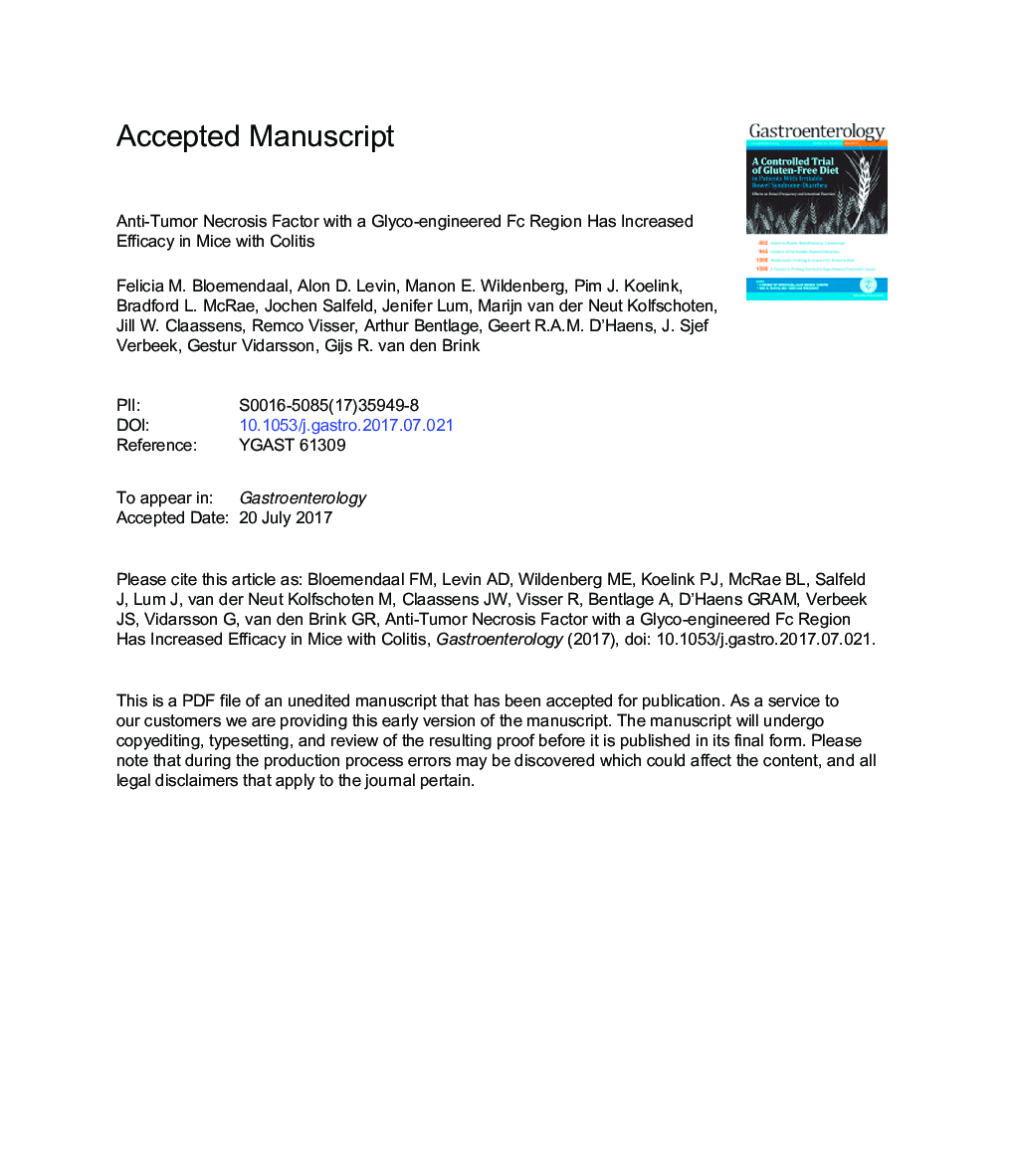| Article ID | Journal | Published Year | Pages | File Type |
|---|---|---|---|---|
| 8727502 | Gastroenterology | 2017 | 37 Pages |
Abstract
In a study of the in vitro and in vivo mechanisms of anti-TNF, we found FcγR engagement by anti-TNF to be required for reduction of colitis in mice and development of CD206+ macrophages. A hypo-fucosylated form of anti-TNF binds FcγRIIIa with higher affinity and induces development of CD206+ macrophages in human PBMCs, especially PBMCs that express low-affinity FcγRIIIa. Hypo-fucosylated anti-TNF might be more effective in patients with inflammatory bowel disease.
Keywords
PBSFcγ-receptorsTNFFcγRLUMCIFNγAdalimumabIBDmAbsMLRADCCRheumatoid arthritisantibody-dependent cellular cytotoxicityimmunoglobulin interferon γinterleukinCrohn’s diseaseInflammatory bowel diseaseintraperitonealtumor necrosis factorPhosphate-buffered salineMouse modelLeiden University Medical Centerknockoutmixed lymphocyte reactionADAMonoclonal antibodiesFcγ receptor
Related Topics
Health Sciences
Medicine and Dentistry
Gastroenterology
Authors
Felicia M. Bloemendaal, Alon D. Levin, Manon E. Wildenberg, Pim J. Koelink, Bradford L. McRae, Jochen Salfeld, Jenifer Lum, Marijn van der Neut Kolfschoten, Jill W. Claassens, Remco Visser, Arthur Bentlage, Geert R.A.M. D'Haens, J. Sjef Verbeek,
